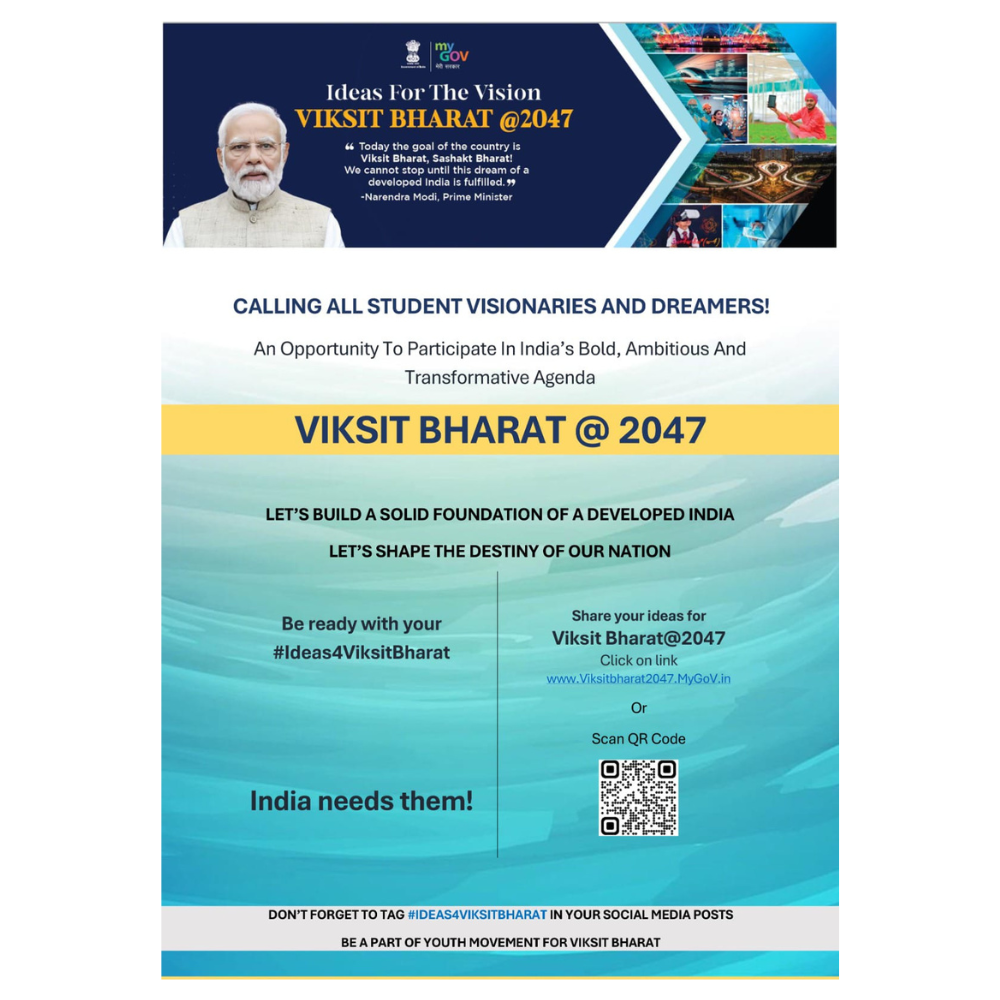Over 150 Faculties and 200 PhD scholars, research associates and project staffs are engaged in various frontline research activity in science & technology, Social science, Arts and humanities areas.
Over 150 Faculties and 200 PhD scholars, research associates and project staffs are engaged in various frontline research activity in science & technology, Social science, Arts and humanities areas.
Department of Bioinformatics
Computational approach to identify underlying mechanism of herbal drugs
In the area of molecular drug design, Professor Rathore in collaboration with scientists at University of Hyderabad has developed a novel method to elucidate underlying mechanism of action of Ayurvedic and herbal drugs. Mankind has consumed traditional Ayurvedic, Unani and various herbal drugs from the time immemorial. The scientific rationale of these drugs has eluded us until yet. The research published in a Wiley Journal of Chemical Biology and Drug Design describe the method that not only identifies the active molecules, but also the underlying mechanism of their action. This opens up a whole range of innumerable possibilities to use traditional natural herbs as starting point to design novel drugs with less or no side effects. This technology has potential to cut down cost and time involved in making a new drug
References
- Potshangbam AM, Polavarapu R, Rathore RS*, Naresh D, Prabhu NP, Potshangbam N, et al. Med PS erver: A database for identification of therapeutic targets and novel leads pertaining to natural products. Chemical Biology & Drug Design (Wiley). 2019;93(4):438–46. https://doi.org/10.1111/cbdd.13430
- The IKK/NF-κB signaling pathway requires Morgana to drive breast cancer metastasis Federica Fusella, Laura Seclì, Elena Busso, Anna Krepelova, Enrico Moiso, Stefania Rocca, Laura Conti, Laura Annaratone, Cristina Rubinetto, Maurizia Mello-Grand, Vijay Singh, Giovanna Chiorino, Lorenzo Silengo, Fiorella Altruda, Emilia Turco, Alessandro Morotti, Salvatore Oliviero, Isabella Castellano, Federica Cavallo, Paolo Provero, Guido Tarone & Mara Brancaccio, Nature Communications volume 8, Article number: 1636 (2017)

Department of Geology
Department of Biotechnology
Use of g-rays to enhance the production of Makhana
The impact of gamma irradiation on growth and physiology of Euryale ferox was described in the present investigation. E. ferox is an underutilized aquatic food crop that grows in shallow-water bodies in lower Assam regions and north Bihar of India. The seeds of E. ferox were irradiated with different doses of gamma irradiation ranging from 0 to 500 Gy. It was observed that the germination and survival percentage was inhibited by increasing the irradiation dose. However, plants developed from seed exposed to an irradiation dose beyond 100 Gy did not survive more than 1 month.
References
Physiological and biochemical responses of Makhana (Euryale ferox) to gamma irradiation N Kumar, S Rani, G Kuamr, S Kumari, IS Singh, S Gautam, BK Choudhary Journal of biological physics 45 (1), 1-12, 2019.

Department of Environmental Sciences
Department of Life Science
Department of Pharmacy
Department of Psychological Sciences
Department of Chemistry
Design of New nanomaterial for cancer
Dr. Amiya Priyam and his research scholar Mr. Bhavesh Kumar Dadhich synthesized a new class of nanomaterials ‘Hollow Silver Nanoshells’, which show unique optical property, ‘surface plasmon resonance’ in the near-IR region. In addition to the treatment of cancer, these nanomaterials can also be utilized to harvest solar energy for environmental remediation of dye-wastes produced in textile industry.

Department of Physics
Department of Teacher Education
Department of Physical Education
Department of Law & and Governance
Department of History
Department of Economic Studies and Policies
Department of Development Studies
Lorem Ipsum is simply dummy text of the printing and typesetting
Lorem Ipsum is simply dummy text of the printing and typesetting industry. Lorem Ipsum has been the industry's standard dummy text ever since the 1500s, when an unknown printer took a galley of type and scrambled it to make a type specimen book. It has survived not only five centuries, but also the leap into electronic typesetting, remaining essentially unchanged. It was popularised in the 1960s with the release of Letraset sheets containing Lorem Ipsum passages, and more recently with desktop publishing software like Aldus PageMaker including versions of Lorem Ipsum.

Department of Political Studies
Department of Sociological Studies
Department of Mass Communication and Media
Department of Commerce and Business Studies
Department of English
Department of Hindi
Centre for Indian Languages(Urdu)
Department of Mathematics
Department of Statistics
Department of Computer Science
Important Links
- Pharmacy council of India
- National Council for Teacher Education (NCTE)
- Ministry of Human Resource Development (MHRD)
- University Grants Commission (UGC)
- Government of India Web Directory
- National Scholarship Portal
- All India Council for Technical Education (AICTE)
- The Bar Council of India
- National Knowledge Network
- National Apprenticeship Training Scheme (NATS)
- National Academic Depository (NAD)


